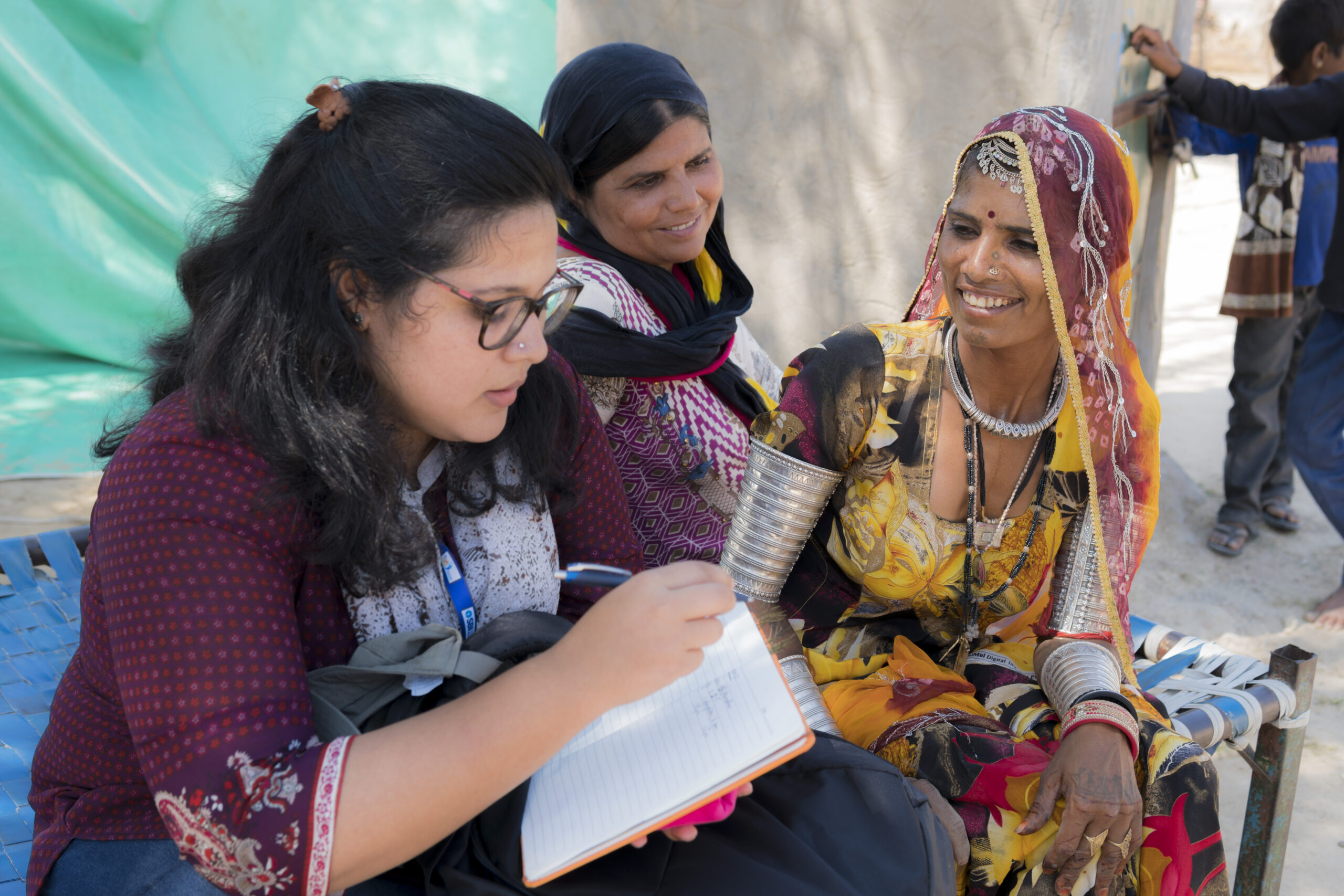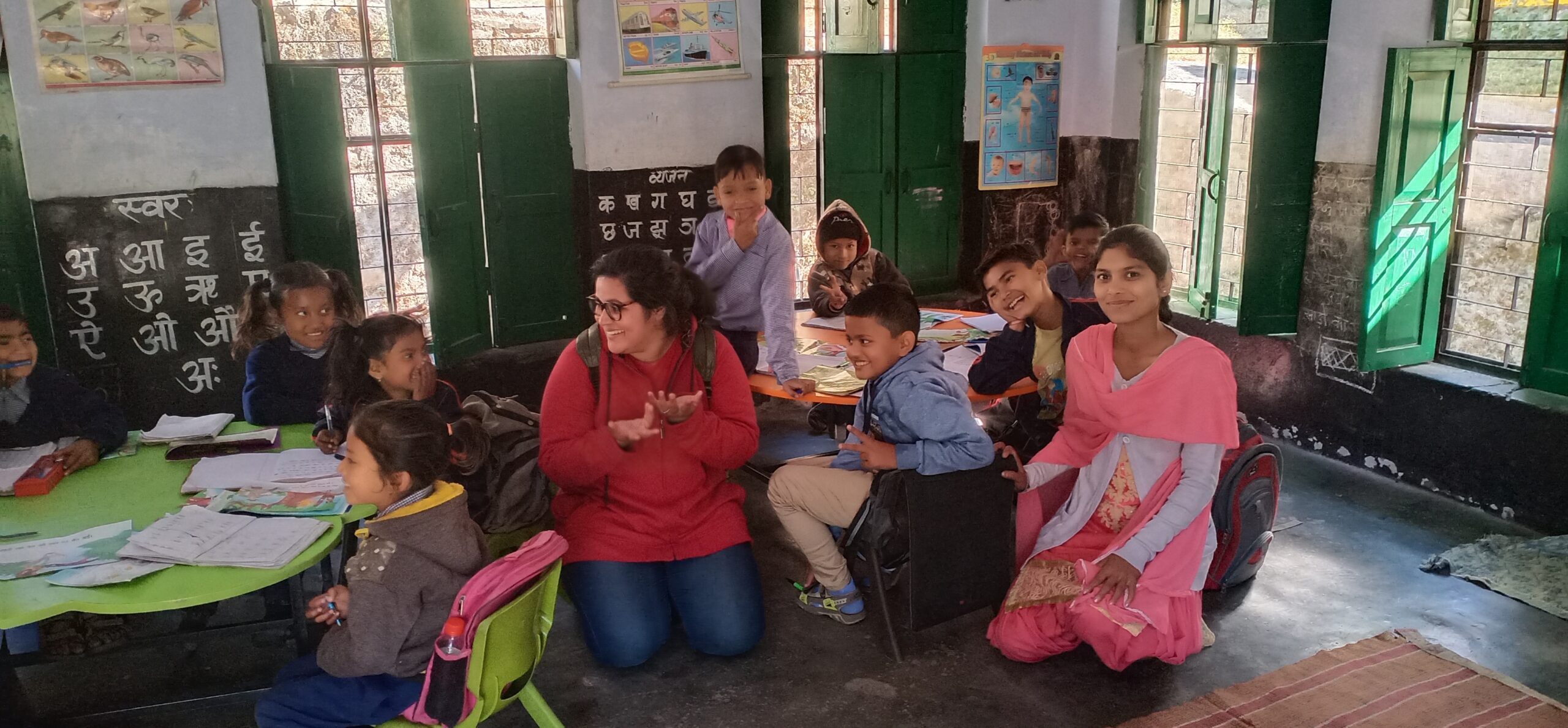This article has been sponsored by SBI Youth for India Fellowship.
After graduating from St Agnes College, Mangalore, Karnataka, with a degree in Psychology, English Literature and Office Management in 2017, Lakshmi Nair went on to work in Ahmedabad, Gujarat, at a global technology services company. Six months into the job, the 25-year-old graduate began to realise her true interests lie elsewhere.
“I was always keen on working in the social sector but was not sure how I could make a career of it. I was unhappy with my corporate job and that’s when I came across the SBI Youth for India Fellowship. I thought it’s the perfect opportunity to get hands-on experience in rural development,” shares Lakshmi in an interview with The Better India.
The SBI Youth for India Fellowship allows participants to address rural struggles with innovative ideas and benefit from learning through on-ground experiences. As part of the 13-month fellowship, the participants work with local organisations on an ongoing project or create a new community project to address a particular issue.
The projects cover 12 broad thematic areas such as healthcare, women empowerment, water conversation, self-governance and education.

Lakshmi moved to Satbunga, a remote village located in Nainital district in Uttarakhand to work with the Central Himalayan Rural Action Group (CHIRAG) NGO in October 2019. She undertook a project focused on improving the English-speaking skills of Class 8 students in two government schools — Nathuwakhan and Talla Ramgarh, through activity-based skill development programmes.
Great Opportunity In the Midst of a Crisis
Five months into the fellowship, in March 2020, the COVID-19 pandemic swept through the country and shut down schools. The closure of schools meant that Lakshmi could go to their respective schools and carry out their projects.
However,Lakshmi was undeterred and thought of new ways in which she could implement her project.
In the mountain village of Satbunga, internet was rare and the frequent snowfall and rain made online classes close to impossible. “I had to think of new ways of reaching the children. It was then that I decided to start working with community educators or Bal Shikshaks, people from the community who work with the village students by going to their homes,” says Lakshmi.
While the community educators were trained in Maths and Hindi, Lakshmi made it a point to teach them English. She taught them how to use online tools such as Zoom and Google to conduct classes online, whenever possible. She also created worksheets and a curriculum that the Bal Shikshaks could use to teach the children .
Initially, Lakshmi’s project targeted 60 students in Class 8, but through 20 community educators, the project eventually reached around 500 students from class 1 to 5.

From a Fellow to a Changemaker
From culture to language Lakshmi faced her fair share of challenges throughout the fellowship.
“Initially, the students were scared to even try speaking in English and since I only spoke English, they avoided me. As I conducted activities and played games with them, they warmed up to me. By the end of my fellowship period, the children were so confident that they wanted to conduct their own skits and dramas in English,” shares Lakshmi.
Since completing the fellowship in October 2020, she is now preparing for her Masters in Development Studies and hopes to continue to work in the education sector.
No comments:
Post a Comment